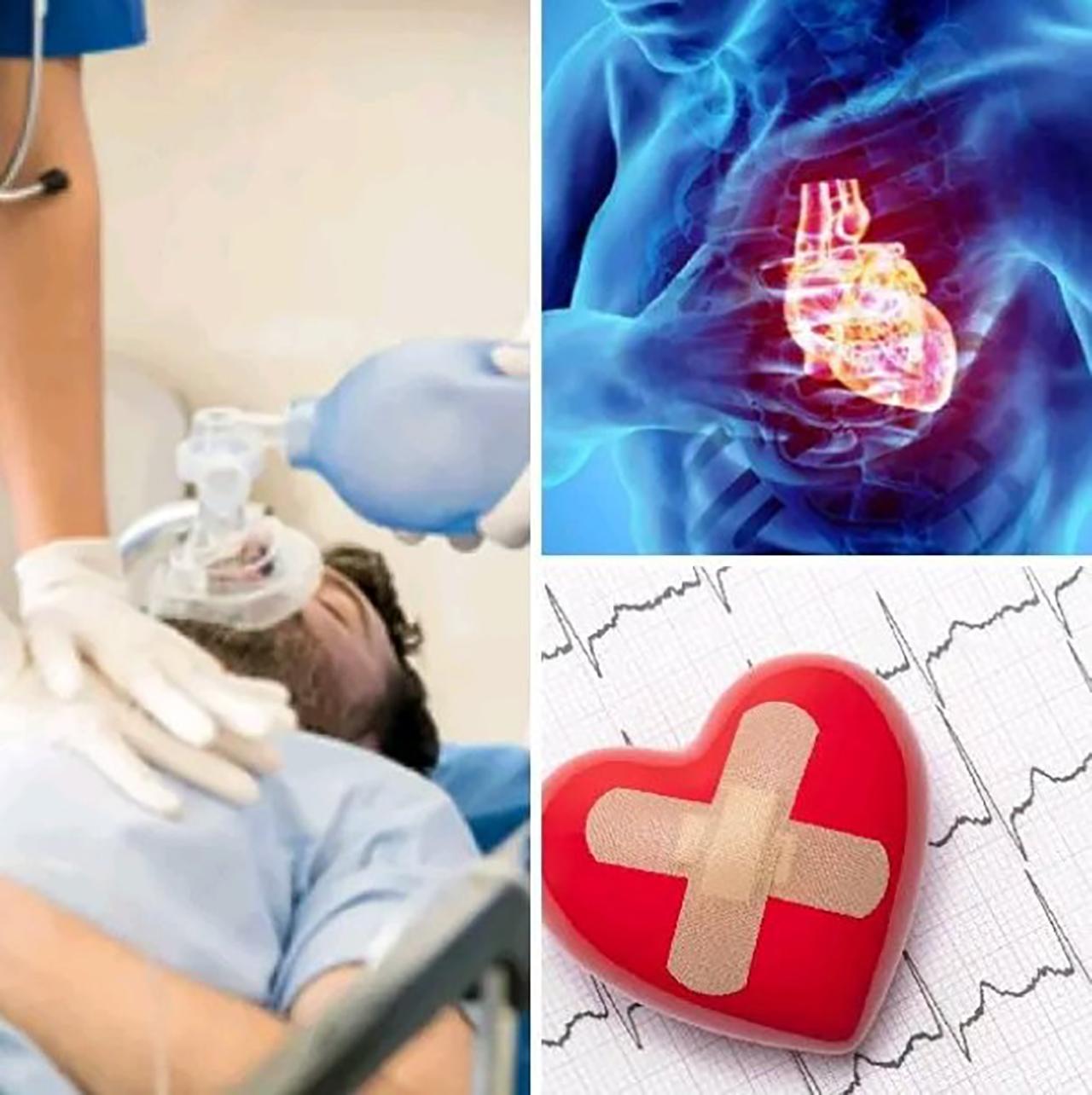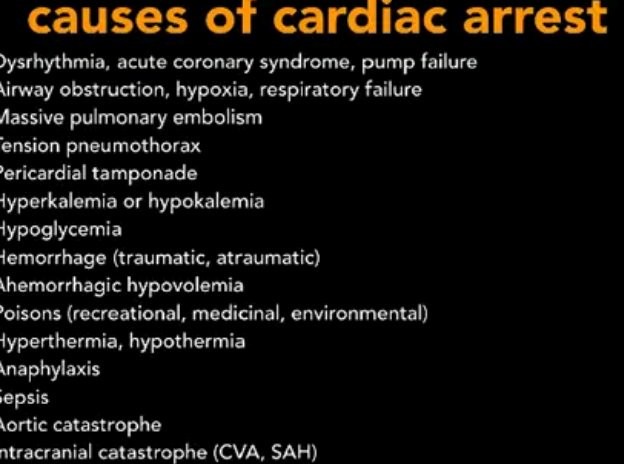Cardiac Arrest Kills Instantly, Avoid Excessive Intake Of this 4 Substance
Cardiac Arrest Kills Instantly, Avoid Excessive Intake Of this 4 Substance
 Cardiac Arrest kills instantly, thus avoiding excessive consumption of these four substances, according to the News Hub’s creator. December 21, 2021 at 6:24 p.m.
Cardiac Arrest kills instantly, thus avoiding excessive consumption of these four substances, according to the News Hub’s creator. December 21, 2021 at 6:24 p.m.
What is a cardiac attack and how does it happen?
If you have a cardiac arrest, your heart ceases to pump and your blood flow is drastically reduced. Cardiac arrest, according to Wikipedia, is defined as “the partial or complete cessation of heart action.” When this occurs, the person is more than likely to pass out and succumb to their injuries. In the real world, the survival percentage for people who have suffered a cardiac arrest is quite low. Patients’ chances of survival are exceedingly slim even when various resuscitation techniques are used, such as Basic Life Support (BLS) and Advanced Cardiac Life Support (ACLS). We can plainly see how devastating cardiac arrest can be when we use this as an illustration.

People experiencing cardiac arrest will experience the four symptoms listed below, in that order:
What are the different ways that a person’s heart can cease beating?
There are a variety of medical issues that might result in cardiac arrest in some people. Patients with hypertension are more likely to suffer a cardiac arrest than those without hypertension. Coronary artery disease, on the other hand, could be to blame. Obesity, excessive cholesterol, and fibrosis are just a few of the factors to consider when it comes to heart disease prevention and treatment. Having a high cholesterol level can result in obesity in otherwise healthy persons who gain a significant amount of weight as a result of a high-fat diet. The person’s heart may become unable to execute its regular duties as a result of weakening cardiac muscle and blood arteries. It is possible that cardiac arrest will occur as a result of this type of situation. This is a common way for cardiac arrest to manifest itself.
The picture below outlines the most important factors that contribute to cardiac arrest.
The onset of cardiac arrest can be triggered by a range of various health issues that are frequently overlooked, in addition to the ones already mentioned above. When it comes to your health, your way of life is really essential. All of the heart illnesses listed above are caused mostly by a person’s way of life rather than by a genetic predisposition. Foods like fast food and other unhealthy meals are becoming increasingly popular, but people’s physical activity levels are dropping. When it comes to your overall health, your diet is quite important. It is vital to consume the appropriate foods. As a result, this page outlines four substances that, when consumed in large quantities, increase the risk of cardiac arrest.
The doctors and nurses are trying everything they can to save the life of this man, who is suffering from cardiac arrest at the moment.
What is the likelihood that excessive intake will result in cardiac arrest?
Cardiac arrest is more likely to occur in those who use four specific medications. In today’s society, those four substances are regularly consumed on a regular basis. Some people suffer as a result of the consequences, while others suffer as a result of their ignorance of the consequences. If you’re reading this, you’ll be doing yourself a favor if you limit your consumption of these items. The following is a list of the compounds in question:
First and foremost, there is excessive use of salt.
The use of salt in the preparation of food is required because it is a necessary component. Food that does not contain salt is analogous to a fish that does not have access to water to survive. Salt consumption should be kept to a minimum for the sake of the heart’s health and overall well-being. Taking in raw salt is one of the most detrimental things you can do to your overall health. In addition to an elevated heart rate, high blood pressure is caused by blood vessels becoming weak or becoming blocked. Given the fact that high blood pressure can result in cardiac arrest, reducing salt consumption is an important step in keeping the heart-healthy.
When you have high blood pressure, you increase your chances of developing coronary heart disease, which can be lowered by limiting your salt intake. Consequently, if you want to keep your heart healthy, you should minimize your salt intake. As we spend more time at home, maintaining a balanced diet becomes more difficult. The consumption of salty snacks and prepared meals, which are frequently high in sodium, might be particularly difficult to avoid.
What is the upper limit of what can be termed excessive behavior?
Adults should consume no more than one teaspoon of salt each day on average. This includes salt that is already present in pre-made goods such as bread, as well as salt that is added to your dish when cooking and eating.
Children should consume less salt than adults in accordance with their age group.
Excessive intake of alcoholic beverages is prohibited.
Drinking excessive amounts of alcohol is harmful to your heart. Excessive alcohol use has been shown to be extremely harmful to the human body in general. It has a deleterious impact on the kidneys, the liver, and the heart, in addition to lowering the immune system’s effectiveness. Because alcohol weakens and kills the heart’s muscles and tissues, as well as the blood arteries, it has the potential to cause cardiovascular disease. Because the heart is unable to perform its normal functions, it becomes easily fatigued and depleted. The consumption of alcoholic beverages is associated with an increased risk of the cardiac arrest later in life, according to research. It’s better if you keep your alcohol consumption to a minimum or avoid it altogether.
Foods that are fried or greasy
Instead, the more fatty meals you consume, the more likely you are to gain weight, which can lead to obesity, high cholesterol levels, and other health problems. When it comes to fried dishes, the amount of oil used is enormous, especially if the oil is dangerous. Obesity is unavoidable, and cardiovascular disease and cardiac collapse are inevitable results. Healthy individuals should be aware of their weight, cholesterol level, and body fat percentage, as well as their overall health. Frequent consumption of deep-fried foods should be avoided. The elimination of dietary fat from your diet, as well as the prioritization of physical exercise, are recommended.
Cigarettes, cigars, and pipes are examples of tobacco products.
Cigarettes, tobacco, and other smoking-related goods are all detrimental to your cardiovascular health. Ingestion of these drugs results in the release of carbon monoxide (CO) into the bloodstream, which is exceedingly harmful. Carbon monoxide reacts with oxygen to form a highly toxic gas that weakens the heart and makes it more difficult for it to pump blood throughout the body. As the heart muscle weakens, so do the blood vessels that feed it with oxygen and nutrients. When compared to non-smokers, smokers are more likely to die in their early thirties. More than 80 percent of the world’s smokers suffer from at least one heart condition. Heart failure will eventually result as a result of this. By avoiding the impulse to smoke, you can prevent the cardiac arrest from occurring.
When it comes to your cardiovascular health, what is the impact of smoking?
Once in the lungs, oxygen goes through the cardiovascular system and the blood vessels to the rest of the body, where it is then exhaled by the heart. When you inhale cigarette smoke, on the other hand, your blood becomes contaminated with the chemicals in the smoke, which is then pumped throughout your body. Exposure to these drugs has the potential to induce cardiovascular disease (CVD), which is the leading cause of mortality in the United States.
Cardiovascular disease (CVD3) refers to a group of ailments that affect the heart or blood vessels and are grouped together. Here are a few illustrations:
Coronary artery disease is a condition that affects the arteries that provide blood to the heart.
the disease of the coronary arteries
high blood pressure (high blood pressure)
A cardiac attack.
stroke
aneurysms
disease of the peripheral arteries
You increase your risk of developing cardiovascular disease (CVD) if you smoke cigarettes. Cardiovascular disease (CVD) is defined as the formation of plaque (a waxy substance made up of cholesterol and other materials) in the arteries that carry blood from your heart to the rest of your body. This buildup of plaque can lead to the development of a condition known as atherosclerosis. When cigarette smoke causes atherosclerosis and thicker blood in the arteries, it makes it more difficult for blood cells to travel through the arteries and other vessels to reach vital organs such as the heart and brain. 4 If these blood clots are not removed, they can cause a heart attack, a stroke, or even death if left untreated. 1,2
Cigarette smoking can cause a variety of other serious cardiovascular disorders, including but not limited to the following:
Peripheral Artery Disease (PAD) is a medical ailment that causes inadequate blood flow to the arms, legs, hands, and feet (or peripheral vascular disease). When it comes to this condition, smoking is the most common cause, and it can result in amputation if left untreated.
Uncontrolled expansion of a portion of the aorta, the body’s main artery, which is positioned in the abdomen, leading to the aneurysm. If a ruptured abdominal aortic aneurysm is not treated promptly, it might result in sudden death. Aortic aneurysms are more common in women than in men, and smoking is the leading cause of death in both cases.
A person who is concerned about their health should read this essay and put it into practice as soon as possible. Every day, a significant number of people lose their lives because they do not have access to the knowledge they require. It’s better to go all in and put your faith in God to take care of the rest. It is critical to remember that you are ultimately responsible for your own health.
Source: Link Link
Content created and supplied by: Sporthub (via Opera News )